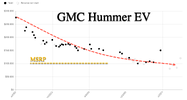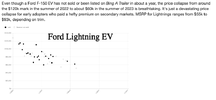IFocus
You are arguing with a Galah
- Joined
- 8 September 2006
- Posts
- 8,135
- Reactions
- 5,445
Road test on the new Polestar 4, I'm not too sure on no rear view mirror or window, all done by cameras.
Recon I am a sceptic of the rear view cameras as well.
Friend just bought the BMW electric car the other day after owning a Tesla.







